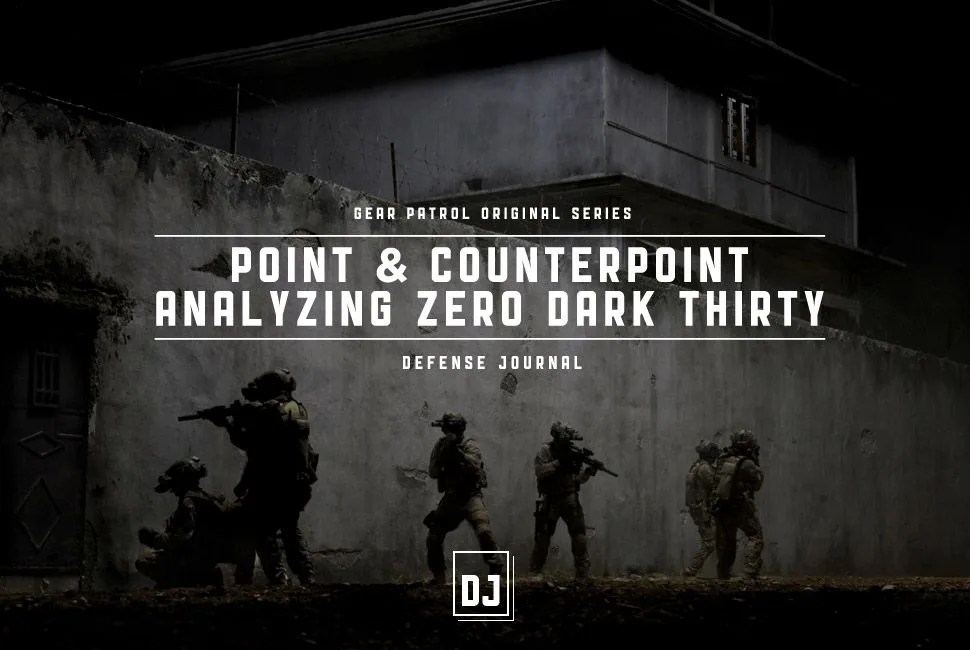The film claims the story is “based on first-hand accounts of actual events” right from the beginning. In the eyes of some, this tricks viewers into believing that Zero Dark Thirty is a proxy for the truth and factually accurate — when the actual statement says nothing of the sort. It simply reveals that the movie’s creators consulted with one, or possibly many people who experienced events relevant to the story and then used what they learned in the process of making the film. This isn’t exactly a novel concept for showbiz folks. In fact, it happens all the time, in every conceivable genre. 127 Hours, Act of Valor, Dolphin Tale, The Fighter, I Love You Philip Morris, Margin Call, Moneyball, Sanctum, The Social Network, Soul Surfer, Unstoppable and The Whistleblower are just a few titles that utilized this process to some degree (though they admittedly didn’t require cooperation from the CIA). They’ve all been released just within the last 2 years.
Perhaps Bigelow & co. deserve to be chided for embellishing the “based on a true story” catchphrase that Hollywood normally uses to throw weight behind certain works of cinematic fiction (and we all instinctively now know to interpret as bullshit). But the current volume of outcry has now eclipsed the realm of reasonable reactions to this marketing misstep.
That’s because Zero Dark Thirty also deals with a subject that’s still very raw in our collective consciousness: the horrific atrocity of September 11th and the following decade the US government spent hunting down those responsible for it. Specifically, it’s the film’s portrayal of torture — and interestingly enough not other horrors depicted, like the on-the-spot execution of women and children — that’s made the movie a new punching bag for the morally righteous. To quote David Clennon, an Academy of Motion Picture Arts and Sciences member leading a boycott of the movie at the Oscars, the film “promotes the acceptance of the crime of torture as a legitimate weapon in America’s so-called War on Terror”.
But what does “promoting the acceptance of the crime of torture” actually mean? That’s where things get awfully tricky. Bigelow’s hyper-realistic depiction of the CIA’s various methods of “enhanced interrogation” (which we know actually happened) is absolutely gut-wrenching to watch — so much so that many seeing it for the first time look away from the screen. Rather than glorifying the methods, these scenes provide an exclamation point of proof for all but the most sadistic of viewers on why torture is unequivocally immoral. How anyone can walk out of the theater thinking Zero Dark Thirty paints the infliction of physical and psychological pain on human captives in a positive light is, well, baffling.
What’s really upsetting to viewers is actually the way the movie’s main characters passively take in such horrors — and how such atrocious acts can be construed in the plot’s progression. Many with a magnifying glass on the issue say their torture endorsement concerns stem from two scenes in particular. The first is how a key fact, the name of bin Laden’s trusted courier, comes to light. The second is a line uttered later by a CIA operative who suggests information will become harder to collect if the detainee program shuts down.
What’s ironic about this intense plot dissection is that an equally meticulous hunt for counterpoints provides similar amounts of supporting evidence that Zero Dark Thirty actually emphasized how little physical and mental torture benefitted the American intelligence operation. For example, technically the name of Abu Ahmed al-Kuwaiti is only revealed by the detainee (who has been tortured for months) after CIA operatives devise a clever trick and take a “good cop” approach to the task for a change. Later on, the operative responsible for the torture regiment is asked point blank by the Director of the CIA: what’s his confidence level with the trail of information implicating the Abbottabad compound as the safe house of bin Laden? His response? A “soft 60″ percent”. So much for torture being the critical piece of the puzzle.


